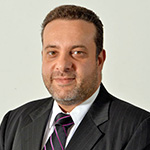Protectionism in the FAIR region

Rising protectionism is affecting the reinsurance sector in Asia and Africa.
Oman Re CEO Romel Tabaja wonders if this phenomenon runs counter to FAIR’s mission of promoting cooperation and business relations among its member countries – and whether the Federation can provide a platform for a solution.

During the last decade, the regions under the umbrella of the Federation of the Afro-Asian Insurers & Reinsurers (FAIR) have witnessed an increasing trend of economic protectionism, in general, and more specifically in insurance. Governments have been taking action to limit the freedom of trade in the insurance sector, which by its very nature, has always been an international activity. The trade of insurance did not have a restricted provision until a few decades ago when Europe started to take action against the unrestricted provision of insurance and reinsurance. Protective barriers to trade in insurance and reinsurance are now obvious in the FAIR region.
Protectionism as an economic term
Protectionism is a policy of protecting domestic industries against foreign competition by means of tariffs, subsidies, import quotas, or other restrictions or handicaps placed on the imports of foreign competitors. In other words, protectionism is the opposite of the economic ideology of free trade. Usually a protectionist policy is pursued to encourage domestic investment in specific industries and to protect local goods and services from foreign competition. However, this policy has its advantages and disadvantages, just like any other policy. Advantages can be lower imports and higher GDP, but the disadvantages can be an increase in prices, limited choices for consumers, less motivation to innovate and stagnation in the development of technology.
Protectionism in (re)insurance: What does it mean?
Protectionism in (re)insurance has the same meaning and concept as explained above. The main aim of protectionism here is to encourage local investment in insurance and reduce the outflow of premiums abroad. Local authorities execute protectionism by various means. Here are some ways protectionist policies are applied in (re)insurance:
- Restrictions on foreign investments in the local (re)insurance industry, including disallowing branches of foreign companies;
- Local compulsory cessions and formation of local pools;
- Solvency advantages for locally registered and capitalised (re)insurance companies;
- Minimum levels of market retentions;
- Higher corporate taxes imposed on foreign (re)insurance;
- Compulsory registration of international reinsurers with strict solvency criteria; and
- Government assets insured only with national companies.
The above barriers are the main means of protectionism used worldwide, and recently in Asian and African FAIR member countries. Such barriers now exist in Malaysia, Indonesia, India, Turkey, Egypt, China, most of the GCC countries as well as being widely apparent in Africa, from north to south.
Whether protectionism is considered right or wrong as an economic policy depends on many factors. It can be right in certain circumstances and it can be wrong in others. The crux of this article, however, is not to condemn protectionism because it might be a good policy option for developing countries to a certain extent. Rather, the question here is: As an organisation, where does FAIR stand in light of increasing protectionist tendencies?
The Federation was established in 1964 to promote cooperation among insurance and reinsurance companies in Africa and Asia through the regular exchange of information, expertise and the development of business relations.
The crucial word here is ‘cooperation’. This takes us to another question: Does protectionism negatively affect FAIR’s mission? The answer is ‘yes’. Protectionism increases the barriers between its members and hence lessens cooperation between them. It is more difficult for members to open insurance company branches in the FAIR member countries. The pools established by the organisation see less business because they cannot be registered in each and every country in Africa and Asia. Furthermore, there is less cooperation when it comes to reinsurance business because local capacity is given priority, which creates isolation from other FAIR members.
To sum up, the executive board of the Federation is urged to look seriously at protectionist policies between its member countries and to take an active role in the trade policy of (re)insurance among its members. FAIR members ought to have the privileges of free trade of (re)insurance in countries under the FAIR umbrella. Otherwise, one day the very ethos upon which FAIR was established – that of cooperation – will disappear.